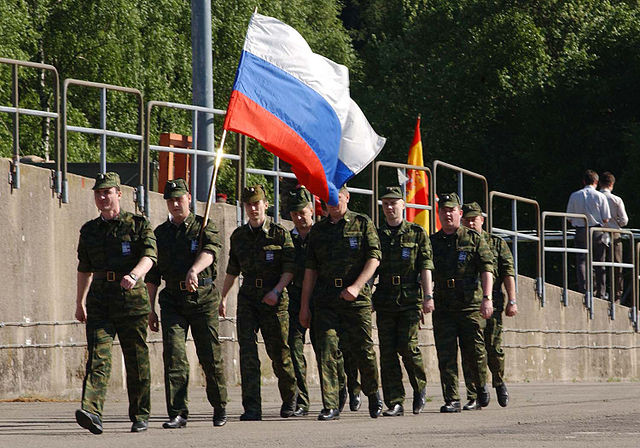Russian forces made significant territorial gains on Tuesday, recapturing more than 100 square kilometers and 12 villages in the Kursk region, according to Russia's Defense Ministry, intensifying pressure on Ukrainian troops who have maintained a foothold on Russian soil since last summer.
The latest Russian advance, which includes the strategic outskirts of the town of Sudzha, threatens Ukrainian supply lines and could potentially encircle forces remaining in Kursk. Yuri Podolyaka, a prominent pro-Moscow military blogger with over three million followers on Telegram, confirmed the rapid Russian progress, noting Ukrainian forces were retreating back towards their own borders.
"The North Group of Forces has liberated 12 settlements during offensive actions... and more than 100 square kilometers of the Kursk region," Russia's Defense Ministry announced Tuesday in its official briefing. The retaken villages include Agronom, Bogdanovka, Bondarevka, and others, primarily clustered near Sudzha.
Ukraine's General Oleksandr Syrskyi, however, rejected suggestions that his troops were facing imminent encirclement. He insisted the situation was manageable, stating: "The units are taking timely measures to manoeuvre to advantageous positions for defence."
The battle for Kursk carries significant symbolic and strategic value. Ukrainian forces initially captured approximately 1,300 square kilometers of the Kursk region in a surprise offensive last August, marking the first major incursion onto Russian soil since World War II. Kyiv hoped that controlling part of Kursk would provide leverage in peace talks with Moscow.
But Russia's recent gains dramatically reverse Ukraine's earlier successes. By mid-February, Ukrainian-held territory in Kursk had shrunk sharply to less than 300 square kilometers, according to DeepState, an online battlefield tracker aligned with Ukraine's military.
Russia's counteroffensive included an audacious maneuver dubbed "Operation Pipeline," in which approximately 800 Russian special forces troops reportedly infiltrated Ukrainian positions by crawling 15 kilometers through an abandoned gas pipeline. Ukrainian military officials confirmed repelling an attack near Sudzha linked to this infiltration over the weekend.
RIA Novosti, Russia's state-run news agency, reported that Russian forces secured a key industrial zone in Sudzha and advanced into residential areas, intensifying urban combat. RTVI, citing a Russian commander, described how the pipeline operation had "disoriented" Ukrainian forces, enabling Russia to reclaim several nearby villages.
These battlefield shifts coincide with broader geopolitical dynamics that increasingly disadvantage Ukraine. U.S. President Donald Trump's recent suspension of military aid and intelligence-sharing has intensified Kyiv's vulnerability at a critical juncture. European leaders express growing anxiety that Trump's reversal of support could lead to further Ukrainian territorial losses.
In response to Russia's advances, Ukraine launched its largest-ever drone assault on Moscow and surrounding regions early Tuesday, indicating Kyiv's determination to maintain pressure on Russia's heartland even as its own territorial gains diminish. Meanwhile, Ukrainian and U.S. diplomats convened in Saudi Arabia, seeking pathways toward ending the conflict, which has stretched into its third year.




